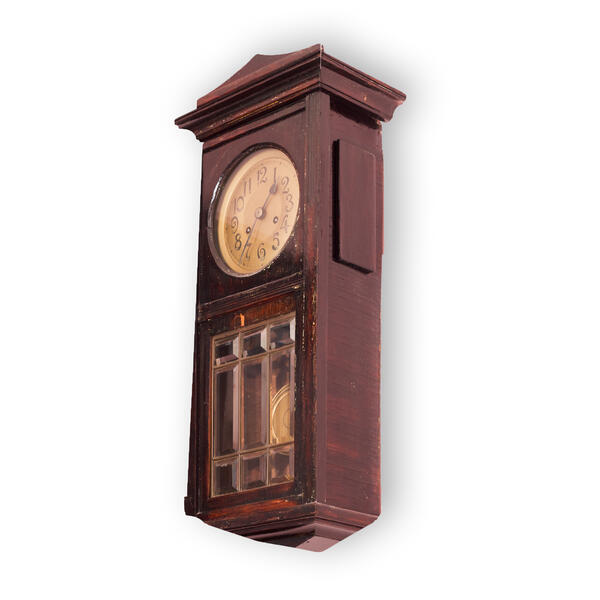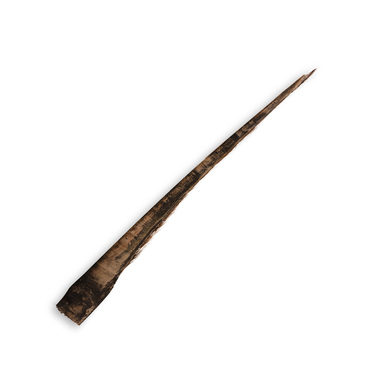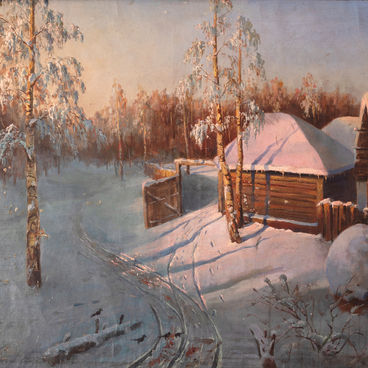Vitaly Zakrutkin inherited this antique pendulum clock from his maternal grandfather, Nikolay Konstantinovich Brailovsky. He learned a lot from his grandfather who strove to pass on his knowledge and experience to young Vitaly and once presented him with this family heirloom, a pendulum clock. Every hour, the clock rings out a lovely melody.
Nikolay Brailovsky taught music and singing at the teachers’ institute in Feodosia before the revolution of 1917. When he retired, he settled with his wife in Taman. He was invited there to serve as a church choir master. Nikolay Brailovsky was well acquainted with psalms because this subject had been taught at the teachers’ institute. He managed to organize his work in the church very well. It seemed that the family had a nice and calm life in Taman. However, soon, their grandson Vitaly became seriously ill and was brought to their home. The doctor advised him to spend time at the seacoast and breathe its healing air to get rid of a severe cough. For a month, the grandparents helped the future writer recover. They prepared infusions, brewed herbs, the grandfather took the boy to the sea, the grandmother baked pies, pastries, and cookies. In the evenings, Nikolay Brailovsky played the cello.
A month later, Vitaly felt much better and started hiking to the mountains with his grandfather where they collected medicinal herbs, nuts, and berries. Sometimes, they went out to sea on a boat. “…The sailor’s quarters are dear to me, / Our modest dwelling, / The bluest in the world, / My Black Sea, / My Black Sea,” Vitaly Zakrutkin wrote later.
After such hikes, the boy began to notice the beauty of the world around him, admire the endless shades of the sea, sunrises and sunsets, and listened to the singing of birds.
Vitaly Zakrutkin remembered the church where his grandfather took him for its wall paintings and the singing. Nikolay Brailovsky adored his grandson. He bequeathed to Vitaly not only a clock, but also a cello, his books, and the house where they lived in Taman. The only thing that has been preserved is the clock.
The clock was stopped on the day Vitaly Zakrutkin passed away, October 10, 1984.



